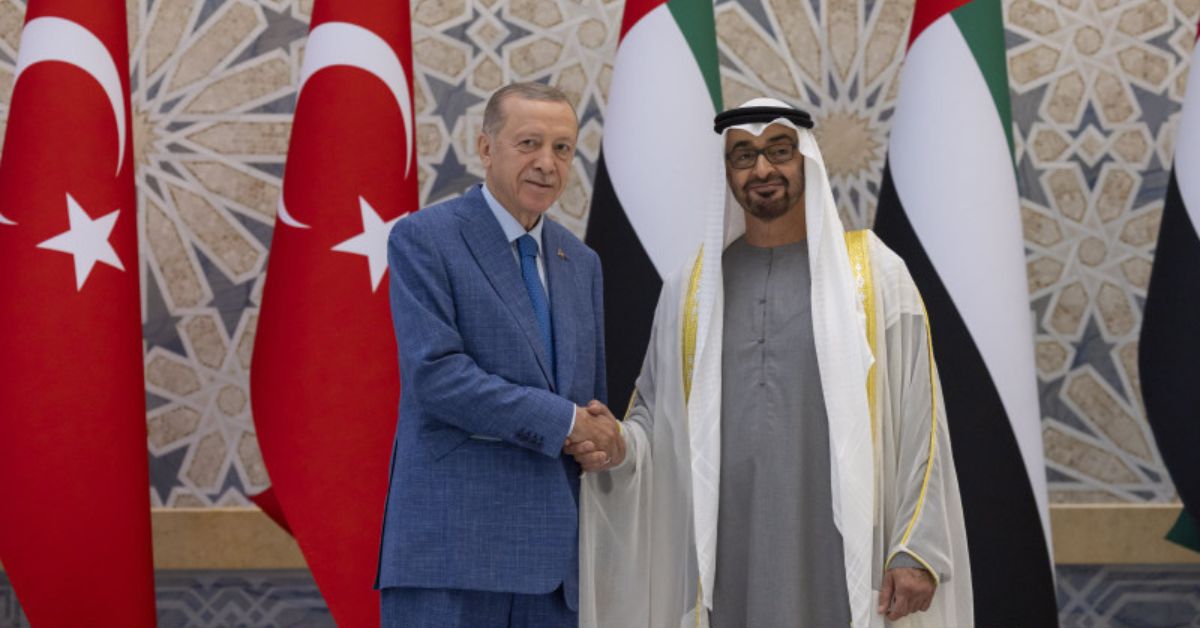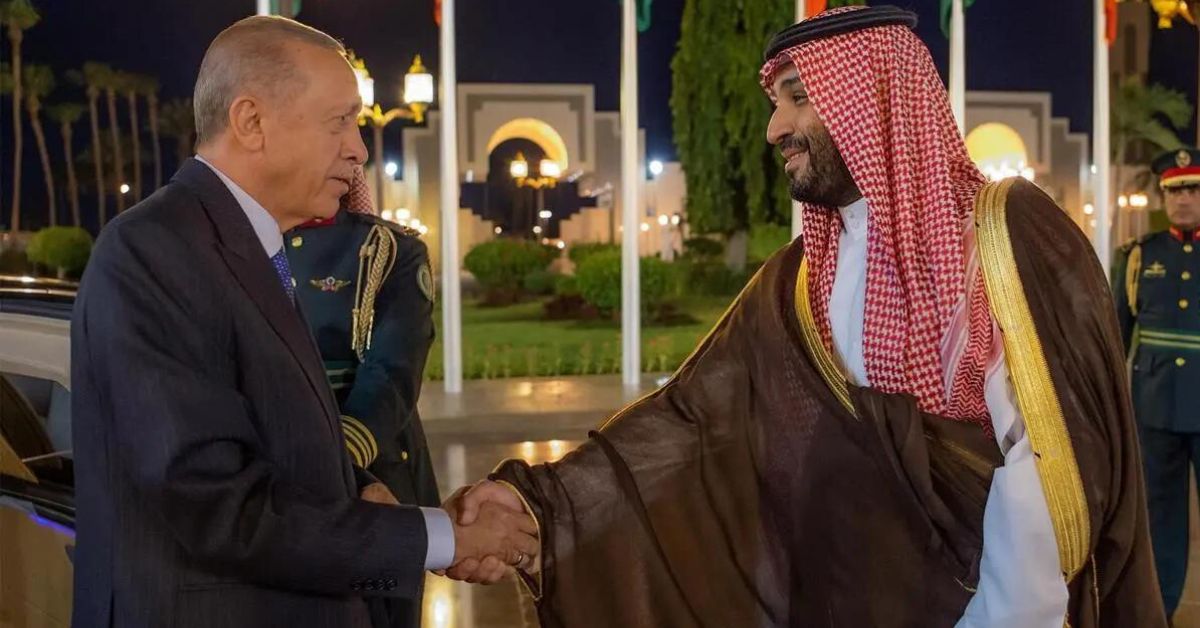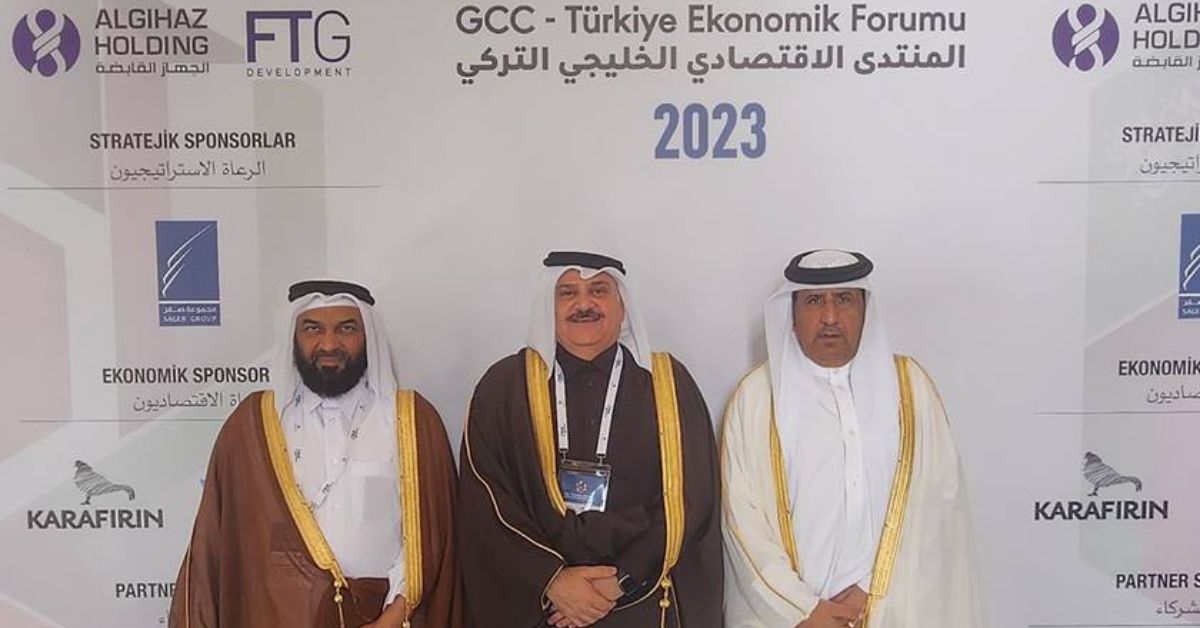Istanbul: Between 2013 and 2020, political standoffs hindered efficient trade and commercial discussions between Türkiye and GCC countries, primarily the UAE, Saudi Arabia, and Qatar.
Türkiye’s institutional ties with the GCC date back to 2005 with the signing of the ‘Framework Agreement for Economic Cooperation’ in Bahrain. In the past two years, Türkiye and the GCC have engaged in dynamic talks, leading to the signing of multiple deals worth several billion U.S. dollars.
Turkish President Recep Tayyip Erdoğan’s visits to Saudi Arabia, Qatar, and the UAE in July 2023 marked the beginning of a new era of economic cooperation with the Gulf region.
Türkiye serious about attracting investments
Following his re-election, Erdoğan appointed Mehmet Şimşek as finance minister, signaling a return to economic orthodoxy and market stability, essential for boosting confidence among Gulf investors in Türkiye’s financial reforms. In June, Şimşek held high-level meetings in Saudi Arabia, Qatar, and the UAE to promote Türkiye as an investment hub and to strengthen bilateral economic partnerships.
At A Glance * Political standoffs between Türkiye and GCC countries hindered trade from 2013 to 2020. * Türkiye-GCC relations date back to 2005, with recent dynamic talks leading to billion-dollar deals. * President Erdoğan’s 2023 visits to Saudi Arabia, Qatar, and the UAE signal a new era of cooperation. * Turkey aims to triple its trade volume with the Gulf by 2030, amidst economic challenges. * There is a significant increase in tourist visits from GCC countries to Turkey. * GCC countries play a major role in Turkey's foreign direct investment, with notable contributions from Qatar, UAE, and Saudi Arabia. * Turkey and the GCC are collaborating in sectors like energy, finance, retail, and transport. * Post-2023 earthquake, Turkey focuses on deepening trade partnerships with the GCC for recovery. * Turkey and the GCC show mutual benefits in economic diversity and stability.
Türkiye is grappling with an economic crisis, highlighted by soaring inflation which peaked at 85.5 percent in October 2022, eased to 43.7 percent in April, but rose again to over 60 percent in October 2023.
The Turkish Lira has depreciated by about 150 percent in the last two years, leading to the depletion of foreign currency reserves as the central bank intervened, selling substantial amounts of U.S. dollars to stabilize the currency and prevent further devaluation.
Rationale behind bilateral relations
Both parties stand to gain from strengthened relations. Türkiye hosts the world’s 19th largest economy, with a GDP of around $906 billion and a workforce of approximately 33 million people.
Türkiye aims to attract capital inflows and increase its trade volume with the Gulf, which reached $22 billion in 2021. The country plans to triple this figure by 2030. Thriving in hospitality, medical tourism, and construction industries, Türkiye boasts a diversified economy as a G20 member.
In 2021, tourist visits from GCC countries to Türkiye exceeded 445,000, a significant increase from 173,800 in 2020. Türkiye welcomed nearly 44.6 million international tourists in 2022, almost double the number in 2021.
Türkiye, with a population of 85 million, and the GCC, home to 55 million, present clear and natural synergies as both regions grow and seek expansion. The combined market size offers Turkish and GCC businesses opportunities for unprecedented scale.
Jack Selby, managing partner at AZ-VC and managing director at Thiel Capital
Trade volume with the GCC surged to $22.7 billion in 2022. Türkiye’s main exports to the GCC included machinery, vehicles, and steel products, while its primary imports were oil and gas.
“Türkiye, with a population of 85 million, and the GCC, home to 55 million, present clear and natural synergies as both regions grow and seek expansion. The combined market size offers Turkish and GCC businesses opportunities for unprecedented scale,” says Jack Selby, managing partner at AZ-VC and managing director at Thiel Capital.
Türkiye is also a significant energy importer, with energy imports increasing by over 90 percent to $96.55 billion in 2022, according to TurkStat. This aligns well with the GCC, notable energy exporters. Türkiye is an appealing destination for renewable energy projects, a sector in which the GCC is investing as part of their economic transition beyond oil reserves.
The Turkish construction sector aligns well with GCC ambitions. Erdal Eren, head of the Turkish Contractors Association (TMB), mentioned Saudi Arabia’s plans to undertake a new $3.3 trillion project over the next 10 years.

Meanwhile, the GCC states boast a combined GDP of over $3.464 trillion and have contributed over 7 percent of foreign direct investment (FDI) in Türkiye since 2020. As of 2022, this investment totaled $15.8 billion, with Qatar leading at $9.9 billion, followed by the UAE at $3.4 billion, and Saudi Arabia at $500 million.
Investments primarily in the energy, finance, retail, and transport sectors could elevate FDI to around $30 billion in the coming years.
Türkiye views Saudi Arabia, Qatar, and the UAE as key partners, noting their combined $1.8 trillion GDP, underpinned by a robust hydrocarbon sector, solid legal frameworks, modern infrastructure, and relative ease of doing business. Following the devastating February 2023 earthquakes in Türkiye, which resulted in about $104 billion in infrastructural damage and economic losses, the country is more intent on deepening trade partnerships with the GCC to aid its recovery process.
Deals and support for Türkiye
As gestures of goodwill, the UAE and Qatar have recently provided Türkiye with $20 billion in currency-swap agreements, while Saudi Arabia deposited $5 billion into the Turkish Central Bank to bolster foreign reserve liquidity.
Recently, executives from around 80 Turkish building companies met with Saudi Aramco in Ankara to discuss potential projects in Saudi Arabia worth $50 billion.
“The combined economic diversity of these two regions can help mitigate and stabilize economic fluctuations. It’s a mutually beneficial relationship, not a zero-sum game,” Selby said.

“By doubling the size of a regional, Islamic block of countries, the Türkiye-GCC alliance empowers sectors that might otherwise be underscaled. For instance, locally produced film and TV for the combined market, while respecting regional cultural uniqueness, becomes a more viable business venture. This perspective also applies to other culture-driven industries like Islamic finance and tourism,” Selby added.
During President Erdoğan’s 2023 GCC tour, Türkiye signed agreements focusing on capital investments in real estate, industry, and infrastructure. The Abu Dhabi Development Holding sovereign wealth fund (ADQ) signed an MOU to finance up to $8.5 billion in earthquake relief bonds. Additionally, ADQ pledged $3 billion in credit facilities to support Turkish exports and a $300 million partnership to invest in Turkish technology startups.
Türkiye also announced that it had secured framework agreements for bilateral investment with the UAE, totaling over $50 billion. The UAE expressed interest in investing in Istanbul’s metro system and the high-speed railway connecting to Ankara. The two countries aim to increase their trade volume from $18 billion to $40 billion within the next five years.
Following the agreement, the UAE’s Minister of State for Foreign Trade, Thani Ahmed al-Zeyoudi, tweeted, “‘This deal marks a new era of cooperation in our long-standing friendship.”
The GCC and Türkiye are key regional powers in the Middle East across various sectors. The GCC appears committed to cooperating with Türkiye in the coming years. Given the significant potential to boost bilateral trade and the range of industries where commercial collaboration is strategic, the solidification of regional ties through economic development seems inevitable, unless future geopolitical conflicts arise.








